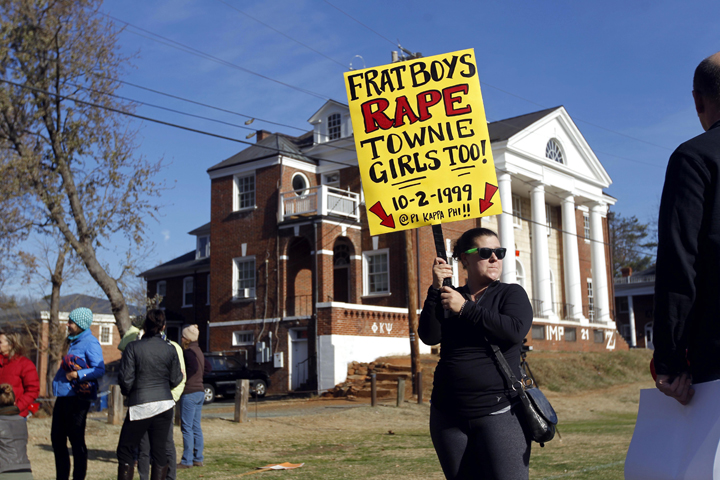CHARLOTTESVILLE, Va. – The University of Virginia on Saturday suspended activities at all campus fraternal organizations amid an investigation into a published report in which a student described being sexually assaulted by seven men at a fraternity in 2012.

President Teresa Sullivan said in a letter to the university community that the Board of Visitors is scheduled to meet Tuesday to discuss the allegations contained in a Rolling Stone article, along with the university’s policies and procedures concerning sexual assaults. Groups of students, faculty, alumni and others will be asked to hold similar discussions.
“In the words of one student who wrote to me this week, ‘Policy is needed, but people make change,”‘ Sullivan wrote. “We need the collective strength of the members of our community to ensure that we have the best policies.”
Sullivan said the suspension of all fraternal groups is effective until Jan. 9. She also has asked Charlottesville police to investigate the alleged rape at the Phi Kappa Psi house. The fraternity has voluntarily surrendered its fraternal agreement with the university.
On Friday, Attorney General Mark Herring said the university agreed to withdraw its appointment of former federal judge and prosecutor Mark Filip as independent counsel to investigate how the school responds to rape allegations. In college, Filip was a member of Phi Kappa Psi.
Sullivan had said the Rolling Stone article includes details that weren’t disclosed to university officials previously.
“I write you in great sorrow, great rage, but most importantly, with great determination,” Sullivan wrote. “Meaningful change is necessary, and we can lead that change for all universities. We can demand that incidents like those described in Rolling Stone never happen and that if they do, the responsible are held accountable to the law. This will require institutional change, cultural change, and legislative change, and it will not be easy. We are making those changes.”



Comments